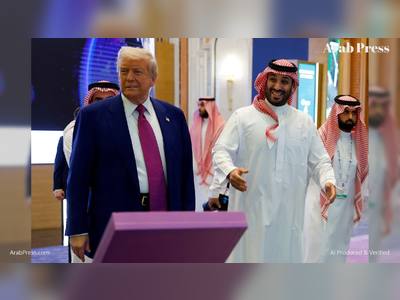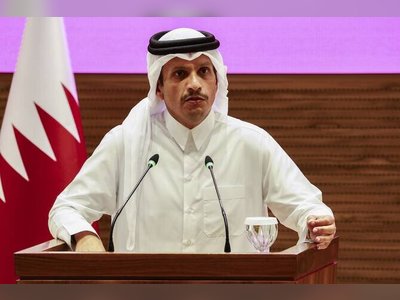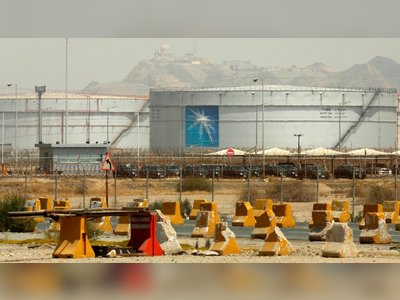Trump Predicts Saudi Arabia Will Normalise with Israel Ahead of 18 November Riyadh Visit
US President signals breakthrough in the Abraham Accord talks despite Saudi precondition of Palestinian statehood
US President Donald Trump stated in a wide-ranging interview that he expects Saudi Arabia to normalise relations with Israel without necessarily requiring the previously stipulated two-state solution.
His remarks come just weeks before Mohammed bin Salman’s state visit to Washington on 18 November.
Asked whether he believed Saudi Arabia would join the Abraham Accords despite the kingdom’s stated insistence on a Palestinian state as a precondition, the US President replied: “No, I think he’s going to join.
… I don’t know if it’s going to be two-state, that’s going to be up to Israel — and other people, and me.”
Mr Trump also linked the normalization push to broader regional concerns, noting that: “The main thing is … you could have never had any kind of a deal if you had a nuclear Iran.” He emphasised that his administration’s security focus remains on preventing Iranian nuclear expansion and underscored the strategic value of Gulf states’ alignment with Israel in that context.
The remarks reflect a recalibration of US approach to Middle East diplomacy.
Saudi Arabia has consistently held that recognition of Israel must be accompanied by credible progress on Palestinian statehood, a position seen as a key barrier to Riyadh’s entry into the Abraham Accords.
Experts note that the war in Gaza and Israel’s stance on the Palestinian question have complicated earlier trajectories of normalisation.
With the Crown Prince’s forthcoming Washington visit expected to focus on a suite of major economic, investment and defence agreements, the President’s optimism signals that Washington sees a Saudi-Israel breakthrough as integral to its regional strategy.
Should Riyadh formally join the accords, it would mark the largest Arab-Israeli diplomatic shift since the United Arab Emirates and Bahrain in 2020.
Despite Mr Trump’s predictions, Saudi officials have continued to emphasise Palestinian statehood as central to any relations with Israel, suggesting that while progress may be nearing, the terms remain subject to key regional and diplomatic conditions.
His remarks come just weeks before Mohammed bin Salman’s state visit to Washington on 18 November.
Asked whether he believed Saudi Arabia would join the Abraham Accords despite the kingdom’s stated insistence on a Palestinian state as a precondition, the US President replied: “No, I think he’s going to join.
… I don’t know if it’s going to be two-state, that’s going to be up to Israel — and other people, and me.”
Mr Trump also linked the normalization push to broader regional concerns, noting that: “The main thing is … you could have never had any kind of a deal if you had a nuclear Iran.” He emphasised that his administration’s security focus remains on preventing Iranian nuclear expansion and underscored the strategic value of Gulf states’ alignment with Israel in that context.
The remarks reflect a recalibration of US approach to Middle East diplomacy.
Saudi Arabia has consistently held that recognition of Israel must be accompanied by credible progress on Palestinian statehood, a position seen as a key barrier to Riyadh’s entry into the Abraham Accords.
Experts note that the war in Gaza and Israel’s stance on the Palestinian question have complicated earlier trajectories of normalisation.
With the Crown Prince’s forthcoming Washington visit expected to focus on a suite of major economic, investment and defence agreements, the President’s optimism signals that Washington sees a Saudi-Israel breakthrough as integral to its regional strategy.
Should Riyadh formally join the accords, it would mark the largest Arab-Israeli diplomatic shift since the United Arab Emirates and Bahrain in 2020.
Despite Mr Trump’s predictions, Saudi officials have continued to emphasise Palestinian statehood as central to any relations with Israel, suggesting that while progress may be nearing, the terms remain subject to key regional and diplomatic conditions.










